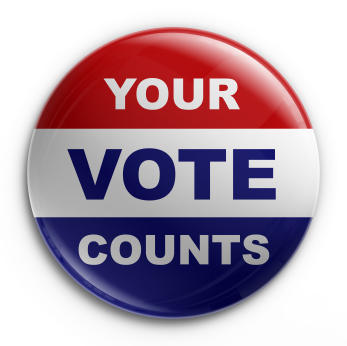Can you take your kids to vote?
It’s Election Day 11.06.2012!
This year my husband and I will be taking the kids to vote with us. We feel it will be an amazing educational opportunity to teach them a bit about their rights and the voting process.
When it comes to talking to your kids about political matters, you may think that your 8-year-old would rather be playing video games or that your 14-year-old would prefer texting friends — but you might be wrong.
Prior to the 2008 presidential election, KidsHealth.org asked more than 2,000 kids and teens throughout the U.S. what they thought about the election and how it might affect them, if at all. A whopping 75% of kids and 79% of teens answered “yes” when asked whether they thought that the outcome of the election would change their lives. Nearly half of teens surveyed said that they believed they’d had at least some influence on their parents’ choice of candidate.
BILL GREENE/GLOBE STAFF/FILE 1998
Luckily our voting poll spot is right across the street from our house, so my husband will take the 2 oldest with him before he drives them to school in the morning. Knowing what kids think about these issues and how they might affect your family is important. We hope that it helps to promote learning as well as clarify any misconceptions they may have or calm any fears about the future.
I will take the wee ones with me when we go for our morning walk. I will have them help me submit my ballot, grab some “I voted” stickers and roll!
Can you even take kids to polls? No matter what the situation, a surprising number of us don’t know the first thing about the rules on voting with kids. Here are the basics you need to know about voting with your children:
1) You are allowed to bring children under 18 with you into the voting booth in every state in the country. So yes, teenagers who are 16 or 17 can come in with you, believe it or not. So can newborns and kids of every age in between.
2) Many states limit the number of children you can take in to vote with you. In Maryland, for example, it’s two or fewer under 18 who can accompany a parent or caregiver into the booth. So what’s a single mom of three to do when she can’t get a babysitter? I guess she’d better make fast friends with the people in line behind her …
3) While at the polls, your children may not interfere with or disrupt the voting process or they may be asked to leave. Bring toys or treats…lines may be long.
4) You can let your son or daughter cast your vote for you. Many parents do that as a way to get their kids even more involved in the process. And they love it!
5) If you’re thinking about voting with your kids as a photo op, think again. Most states won’t let you take cameras, video, or audio devices into the voting booth, and certainly won’t let you photograph the ballot. So save the snapshots for before and after — or you and the little ones will risk being kicked out.
6) For specific rules on voting with kids where you live, look up your state’s voting guidelines online — or call your local election commission. The League of Women Voters and other organizations also have some good information on the subject.
Looking for ways to show them the importance of being involved politically? Here are a few ways to talk to your kids about voting and their rights as citizens in a language they can understand:
Teach them the issues: Use your home security alarm to teach a lesson about homeland defense and your globe to talk about international politics. It’s easy to learn when it’s kinetic!
Stage a Mock Debate: Have your kids debate each other on important home issues like chores and homework. They’ll have to understand where the other person is coming from and why they feel that way – it’s an important lesson to learn not only for voting but for life as well.
Arrange a visit to our Nations Capital: Try to visit to the nation’s capital to allow your kids a tour of the important places and sites in American history. They’ll gain a newfound appreciation for the space of politics.
For a poll locator and more, go to vote411.org, a service provided by the league of Women Voters Education Fund.






Leave a Reply